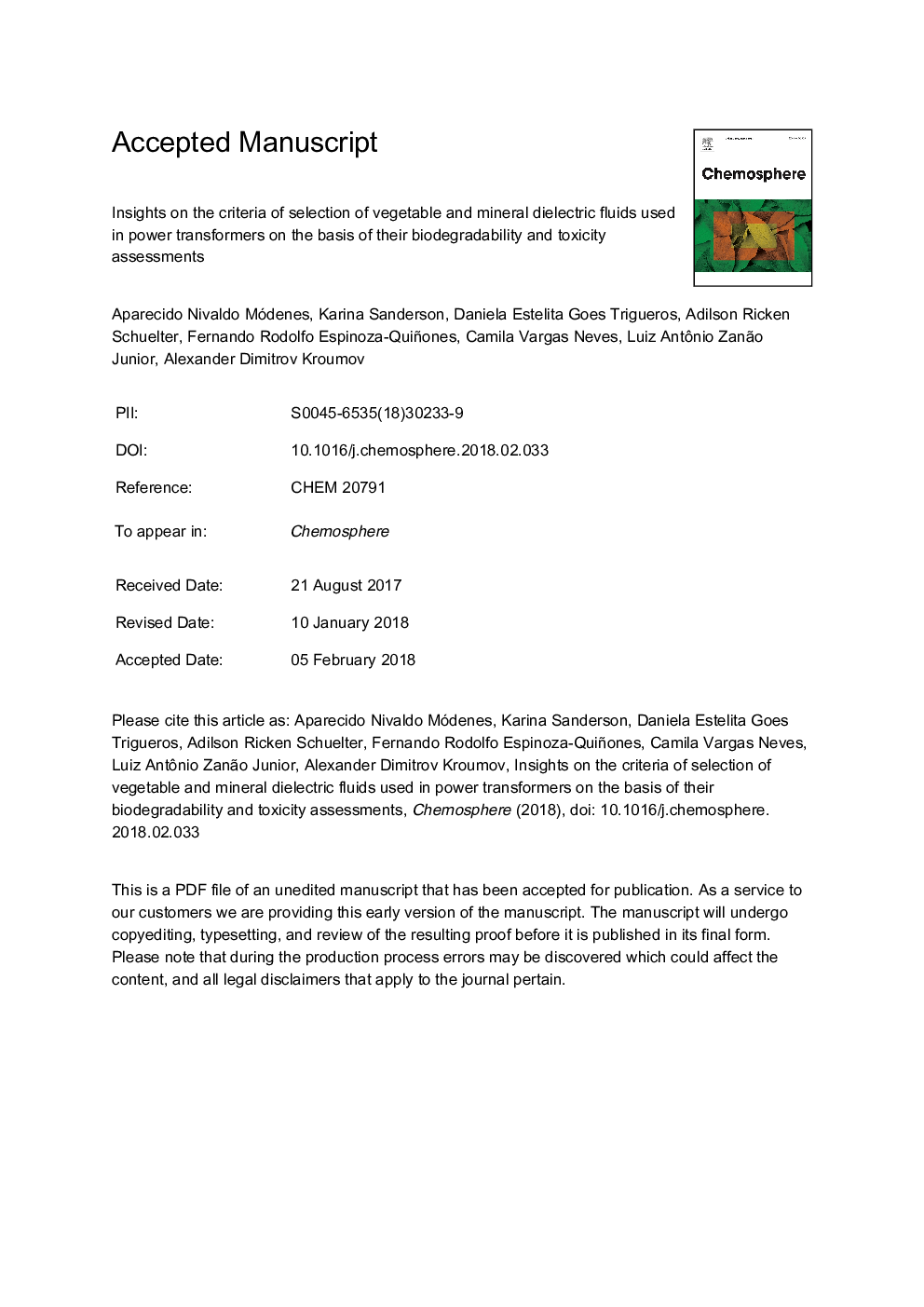| Article ID | Journal | Published Year | Pages | File Type |
|---|---|---|---|---|
| 8851784 | Chemosphere | 2018 | 31 Pages |
Abstract
Leakage of transformer dielectric fluids is a concern because it may pose a risk of environmental contamination. In this study, the deleterious effects of vegetable and mineral dielectric fluids in water bodies were investigated using biodegradability and acute toxicity tests with Danio rerio and Artemia salina. Regarding biodegradability, all four tested vegetable oils (soy, canola, sunflower and crambe) were considered as easily biodegradable, presenting degradation rates significantly higher than the Lubrax-type mineral fluid. Acute toxicity tests were performed in two separate experiments without solution renewal. In the first experiment, the organisms were exposed in direct contact to different concentrations of vegetable (soy) and mineral (Lubrax) oils. Total soy-type vegetable oil has a higher toxic effect than Lubrax-type mineral oil. In the second experiment, the organisms were exposed to increasing percentages of the water-soluble fraction (WSF) of both types of tested oils. The LC50 values for the water-soluble fraction of the Lubrax-type mineral oil were about 5 and 8% for the Danio rerio and Artemia salina bioindicators, respectively, whereas the vegetable oil did not present toxic effect, regardless of its WSF. These results have shown that a strict selection of dielectric fluids and monitoring the leakage from power transformers is a serious duty of environmental protection agencies.
Keywords
Related Topics
Life Sciences
Environmental Science
Environmental Chemistry
Authors
Aparecido Nivaldo Módenes, Karina Sanderson, Daniela Estelita Goes Trigueros, Adilson Ricken Schuelter, Fernando Rodolfo Espinoza-Quiñones, Camila Vargas Neves, Luiz Antônio Zanão Junior, Alexander Dimitrov Kroumov,
